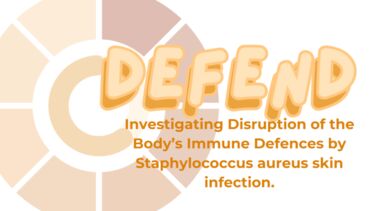Healthy volunteers needed for research study on skin health
We all carry bacteria on our skin, but for some people these bacteria can cause infection in the skin and soft tissue. This study seeks to understand what factors in the skin make it easier for some people to develop infections but not others. We’re looking for healthy volunteers to take part.

About the study
This study is being sponsored by the Sheffield Teaching Hospitals NHS Foundation Trust (STH23188) with funding provided by the UKRI Future Leaders Fellowship. The project has received ethical approval (REC reference 25/EE/0012) and HRA approval (IRAS 347568).
Chief Investigator
What you'll do
Each participant will be involved in the study for approximately 35 days, including 2 visits to the Royal Hallamshire Hospital. Volunteers will receive £100 in compensation for their participation.
At each visit, the study procedure includes:
- Microneedle Stamp: We will test how effective the skin is at repairing itself, by using a device with tiny microneedles to make small holes in the skin surface on your arm and then measuring how long these holes take to disappear.
- Negative Pressure Suction Blister: We use this method to collect immune cells from the skin. A specialised device is applied to the forearm that will suction the skin to create a blister so that we can drain the fluid. The fluid within a blister has lots of immune cells, and may provide us with vital information into how humans respond to infection.
- High Resolution Imaging: We will use a special camera which uses light waves to study the skin layers in close detail and take pictures. This is called optical coherence tomography.
Your experience
We are keen to understand your experience of taking part in this type of research. To assess this, we will ask you to complete a survey at several points in the study which will be used to measure wound healing.
View the Participant Information Sheet
Contact us
If you’re interested in participating or learning more about this research, please get in touch with the study team:
